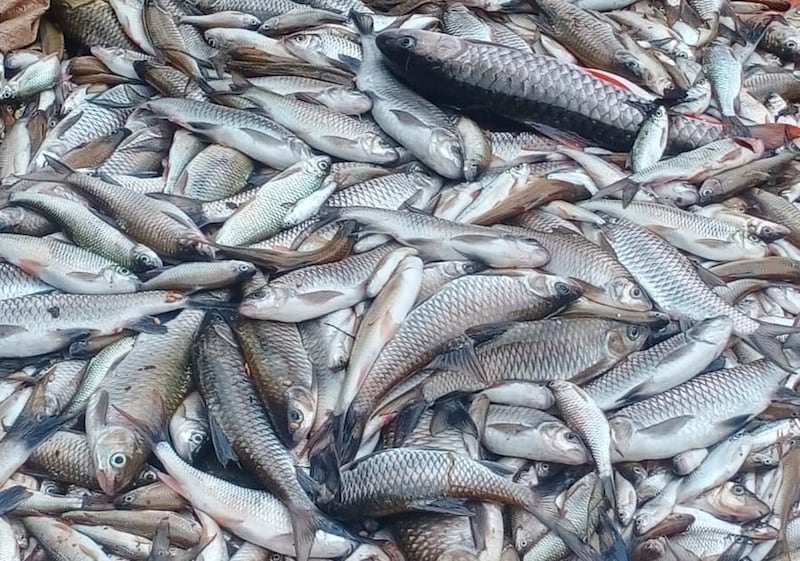A burst sewage pipe at a Chinese-owned pig farm in northeastern Laos has polluted a nearby river, killing over 230 kilograms (500 pounds) of fish, an important food source people in nearby villages, local government officials and villagers told Radio Free Asia.
It’s the latest example of industry causing environmental damage in Laos, which has been aggressively pursuing policies that encourage rapid development through foreign investment for the past few years.
The waste from the farm in Viengxay district in Houaphanh province entered the river on Jan. 23 and 24. On Jan. 25, authorities inspected the river and found that it was polluted.
The farming company took responsibility for the accident and signed an agreement with the local government promising to pay compensation for the dead fish and to restock the river with young fish, several officials told RFA Lao – although it wasn’t clear how much compensation would be paid.
A provincial official, who like all other unnamed sources in this report requested anonymity for safety reasons, told RFA that the waste was not deliberately released into the river.
“What happened was that the waste pipe broke. The company had no intention to release the waste, it was beyond their control,” he said. “The company admitted the mistake and is now in the process of making the repairs to the broken pipe.”
The official said the company has admitted responsibility and has agreed to pay damages.
Actions not words
The residents of nearby Vanghay village, where most of the dead fish were spotted, are calling on the authorities to make sure that the company complies with the agreement. They want the government to impose a deadline to restock the river with young fish and also expand it to make the company responsible for the loss of other aquatic species, including snails and crabs.

“That section of the river near the Vanghay village is a spawning area for the fish,” a resident of the village explained. “The river is the main source of our food. The section of the river should be a protected area. The agreement should clearly indicate when and how the company is going to clean up the river.”
Another villager explained how the polluted river affects their lives, saying, “We can’t fish in the river and we can’t eat fish from the river at all. … We also can’t take a bath in the river either because it’s filled with poop and dead fish.”
A resident from Muang Nga village, downstream from Vanghay demanded that the company pay compensation, but acknowledged that the government would need to hold the company to its word.
A district official told RFA that the company signed the agreement, but acknowledged that the government is still assessing the data and does not know the exact compensation or when it will be paid.
Five fishless years
As for the river, the official did not know when it would be cleaned up.
“Right now, we can’t tell you when the water is going to be clean or safe for use, but I think people can use the water to water their vegetable gardens very soon,” the official said.
“For fishing, the people will have to wait up to three years to be able to fish or eat fish from the river. Because the river is small, it will take at least three years to recover.”
Sosavanh Bankhammy, the Director of the Natural Resources and Environment Department of Houaphanh Province acknowledged the incident to the local media and detailed the compensation plan.
The pig farmer must “refill the river with 100 kilograms (220 pounds) of young fish a year for five years,” he said. “Furthermore, the pig farmer will have to pay residents who collected dead fish from the river at a rate of 15,000 kip per kilogram (34 U.S. cents per pound) of dead fish. If it happens again, the farm must be shut down.”
Translated by Max Avary. Edited by Eugene Whong and Malcolm Foster.
